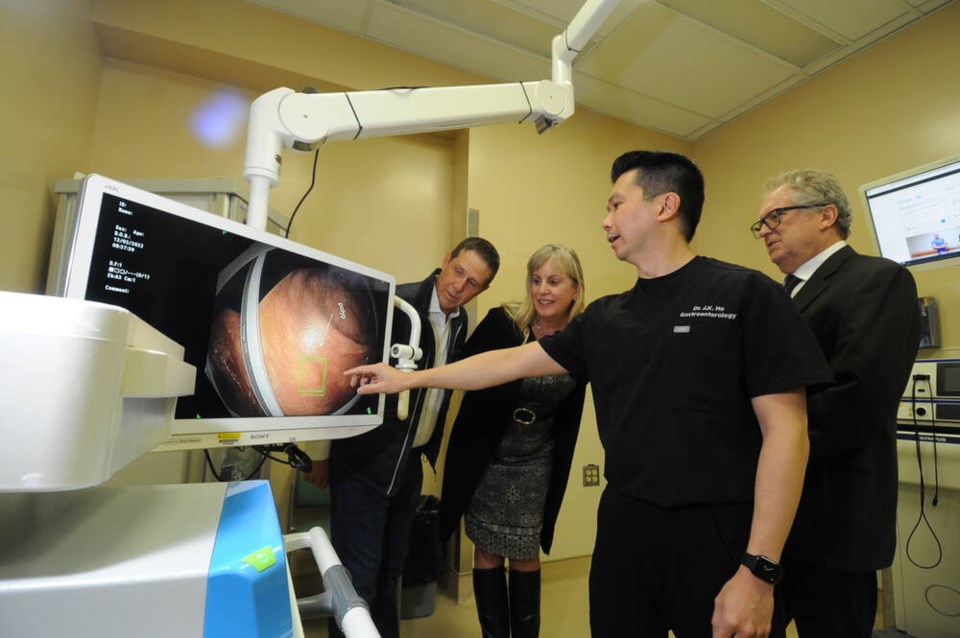Lions Gate Hospital has become one of the first hospitals in the country to use artificial intelligence technology to detect colon cancer, and it’s all down to the generosity of two local residents.
Motivated by the effect colon cancer has had on generations of their own family, Greg and Kelly Wolfe donated $360,000 to support the use of endoscopy screening technology at both Lions Gate and Squamish General Hospital.
The screening device, named the Medtronic GI Genius, uses artificial intelligence to help physicians spot the subtle, potentially cancer-causing growths that can often be missed by cameras or the naked eye.
With the help of Wolfe’s donation, four sets of the tech will be installed between the hospitals.
“This kind of detection technology is changing the landscape of our field,” said Dr. Jin Ho, the gastroenterology division head at Lions Gate Hospital.
“By improving and increasing polyp detection rates, we can effectively reduce the incidence of colon cancer and will ultimately save lives.”
Colon cancer, sometimes known as colorectal cancer, is the number three cause of cancer in the country – with one in 14 Canadian men, and one in 18 Canadian women, estimated to develop it during their lifetime.
Championing the AI-driven tech, Vancouver Coastal Health physician Dr. Richard Lewis said he has noted the difference the device, called the Medtronic GI Genius, offers in terms of cancer detection.
“Based on our evaluation, the device appears to be very sensitive to subtle polyps which may be pre-malignant,” he said.
“Previous studies using the device have also suggested there is an increased rate of detection of small and subtle polyps, with the detection rate of these pre-cancerous polyps correlating with the subsequent risk for developing colon cancer.”
Kelly Wolfe said the two were inspired to make such a lofty donation following years of first-hand experience with the cancer, an experience that, they say, was ameliorated by the care and work given at their local hospital.
The Wolfes have been touched by colorectal cancer firsthand on both sides of their family, with Kelly herself having battled it most recently.
She said they both hope the new devices will help reduce the impact of colorectal cancer on other families, and that their donation will inspire others in British Columbia’s technology sector to support technology adoption in other areas of medical care.
“Without the support of Dr. Lewis and the LGH Foundation, we wouldn’t have been able to deliver this additional level of detection for our community,” she said.
Mina Kerr-Lazenby is the North Shore News’ Indigenous and civic affairs reporter. This reporting beat is made possible by the Local Journalism Initiative.



